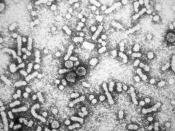The liver is the largest internal organ in the body and probably the most important. It is also the only organ than can repair itself, unless it is contaminated with a deadly virus. The liver is like a complex chemical factory that works 24 hours a day, and if it doesn't work properly, neither do you. Below are a few of the tasks it does:
Cleansing blood
÷metabolizes alcohol, drugs, and other chemicals
÷neutralizes and destroys poisonous substances
Regulating the supply of body fuel
÷produces, stores and supplies quick energy (glucose) to keep the mind alert and the body active
÷produces, stores and exports fat
Manufactures many essential body proteins involved in
÷transporting substances in the blood
÷creating the clotting of blood so you won't bleed to death
÷providing a resistance to infection
Produces bile that removes toxic substances from the body and
also aids digestion.
Regulating the balance of many hormones
÷sex hormones
÷thyroid hormones
÷cortisone and other adrenal hormones
Regulates body cholesterol by producing it, excreting it,
and converting it into other essential substances.
Regulates the supply of essential vitamins and minerals such as
iron and copper. (http://www.liver.ca/englisg/yourliver/
your_liver.html)
The most common serious liver infection worldwide is Hepatitis B(HBV). Once an individual is infected, and they may not even know it, transmitting it to others is quite simple. It can be transferred to another through the mixture of blood or body fluids, direct blood-to-blood contact, unprotected sex, illicit drug use, and from an infected woman to her newborn during the delivery process. The transferring process of Hepatitis C(HCV) is only through blood. (http://www.hepb.org/info.html)
There are five(5) hepatitis viruses that are recognized by medical science today, Hepatitis B(HBV) is probably the second most damaging to the liver.(http://www.hepnet.com/index.html) The infectious of HBV is 100 times greater than that...



Good Informative Essay
This was a good informative essay. You might consider changing a few grammatical things (ie: Once an individual is infected, and they may not even know it, transmitting it to others is quite simple.) Other than that this was a great essay.
3 out of 6 people found this comment useful.